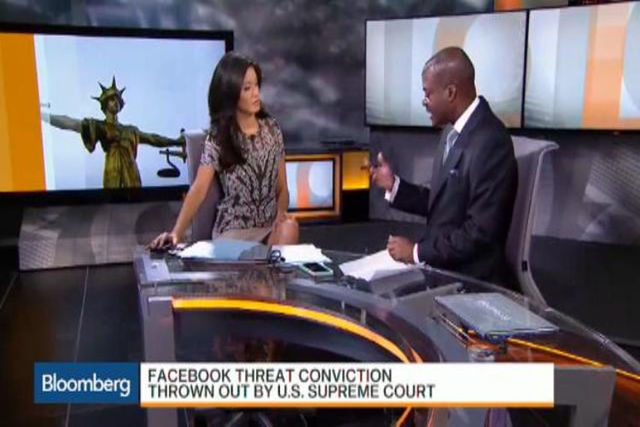Supreme Court throws out conviction against man who made Facebook threats

The Supreme Court ruled Monday in favor of a Pennsylvania man who posted several violent messages on Facebook and was convicted under a federal threat statute — the first time the Court raised the implications of free speech on social media.
The Court said that it wasn’t enough to convict the man based solely on the idea that a reasonable person would regard his communications as a threat.
“Our holding makes clear that negligence is not sufficient to support a conviction,” wrote Chief Justice John Roberts.
The Court held that the legal standard used to convict him was too low, but left open what the standard should be. It is a narrow ruling and the Court did not address the larger constitutional issue.
The case concerns a Pennsylvania man, Anthony D. Elonis, who posted several violent messages on his social media account after his wife left him. He claimed he was an artist who turned to rap lyrics for therapeutic purposes to help him cope with depression.
“There¹s one way to love you but a thousand ways to kill you,” he wrote in one post.
“Enough elementary schools in a ten mile radius to initiate the most heinous school shooting ever imagined,” he wrote in another.
He was convicted for violating a federal threat statute.
Elonis appealed his conviction to the Supreme Court arguing that the government should have been required to prove he actually intended to make a threat before sending him to jail for a 44 month term. Instead, the jury was told the standard was whether a “reasonable person” would have understood the words to be a threat.
John P. Elwood, Elonis’ lawyer stressed in court briefs that his client often posted disclaimers noting he was only exercising his freedom of speech. “The First Amendment¹s basic command is that the government may not prohibit the expression of an idea simply because society finds it offensive or disagreeable,” Elwood wrote. At trial , Elonis testified that his Facebook posts were partly inspired by rap star Eminem.
In court briefs Solicitor General Donald B. Verrilli, Jr defended the conviction.”He was aware of the meaning and context of his Facebook posts, and those posts communicated a serious expression of an intent to do harm, “Verrilli wrote.Verilli said there was no comparison between Elonis’ threats and the protected speech of commercial rap artists made in a “very different” context. But the ACLU filed a brief in support of Elonis argued that context matters. “Words are slippery things,” wrote Stephen Shapiro. He said that a statute that limits speech “without regard to the speaker¹s intended meaning” runs the risk of punishing protected First Amendment expression simply because it is “crudely or zealously expressed.”


















